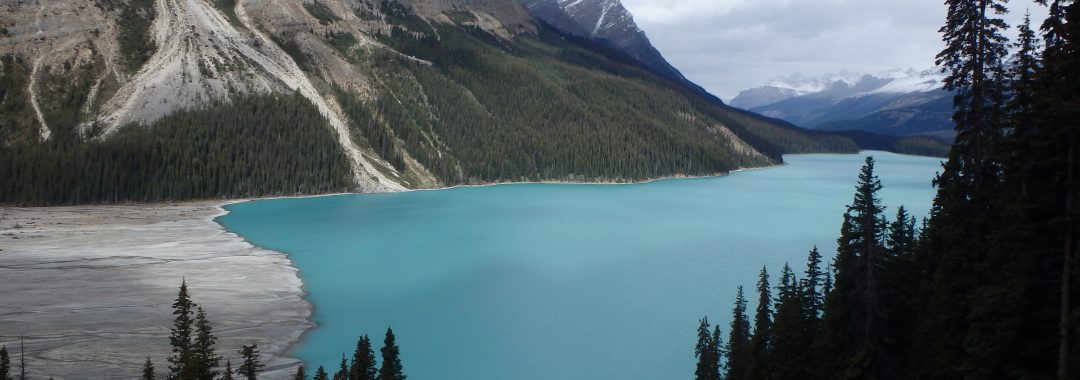Abstract:
Climate change is driving the loss of alpine glaciers globally, yet investigations about the health of rivers stemming from them are few. Here we provide an overview assessment of a biogeochemical dataset containing 200+ parameters that we collected between 2019-2021 from the headwaters of three such rivers (Sunwapta-Athabasca, North Saskatchewan, and Bow) which originate from the glacierized eastern slopes of the Canadian Rocky Mountains. We used regional hydrometric datasets to accurately model discharge at our sampling sites. We created a Local Meteoric Water Line (LMWL) using riverine water isotope signatures and compared it to regional rain, snow, and glacial ice signatures we also collected. Principal component analyses of river physicochemical measures revealed distance from glacier explained more data variability than the spatiotemporal factors season, year, or river. Discharge, chemical concentrations, and watershed areas were then used to model site-specific open water season yields for 25 parameters. Chemical yields followed what would generally be expected along river continuums from glacierized to montane altitudinal life zones, with landscape characteristics acting as chemical sources and sinks. For instance, particulate chemical yields were generally highest near source glaciers with proglacial lakes acting as settling ponds, whereas most dissolved yields varied by parameter and site. As these headwaters continue to evolve with glacier mass loss, the dataset and analyses presented here can be used as a contemporary baseline to mark future change against. Further, following this initial assessment of our dataset, we encourage others to mine it for additional biogeochemical studies.
Citation: Serbu, J. A., St. Louis, V. L., Emmerton, C. A., Tank S., Criscitello, A., Silins, U., Bhatia, M., Cavaco, M., Christenson, C., Cooke, C., Drapeau, H., Enns, S. J., Flett, J., Holland, K., Lavelle-Whiffen, J., Ma, M., Muir, C., Poesch, M. S., and J. Shin. (2023). A comprehensive biogeochemical assessment of climate-threatened glacial river headwaters on the eastern slopes of the Canadian Rocky Mountains. JGR Biogeosciences 129: e2023JG007745.
Also Read:
*Lab members: Mark Poesch. Check out opportunities in the lab!

